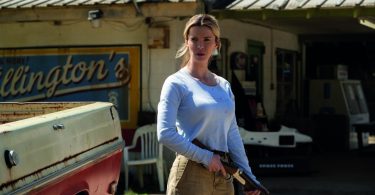“A grocery store would sell this on its generic shelf: the brittle upper-class British cleverness is strictly standard issue. Maybe you’ll enjoy it, but don’t expect to remember it ten minutes later, or even to believe in the characters while you’re watching them.”
That was the vividly harsh description Chicago Tribune film critic Jonathan Rosenbaum had for one of 1994’s best films, and the film that would change not only the British film industry, but the film that would get the title of my favourite film.
That film is Four Weddings and a Funeral. And yes, Rosenbaum, though entitled to his views, was totally and utterly wrong, for long before the film would hold its UK premiere at Leicester Square, London, it would become a wider success across the Atlantic.
A sudden hit
People of the United States appreciate all kinds of forms of British culture, from the literary works of Shakespeare, Austen and Rowling, to the television success of programmes like Are You Being Served and Downton Abbey.
The appreciation comes despite the portrayal of Britain in most forms of the American media, which consists of the pedantic, celebrity style coverage of the Royal Family. If the Duchess of Cambridge (it’s still Kate Middleton to them no matter how much you beg) or the Queen were not a part of the story, Americans wouldn’t likely hear about it.
Four Weddings and a Funeral would be no exception when it came to cultural appreciation. Yet, no one would expect the amount of praise and interest thrust upon it by American audiences, and how quickly the film’s stars, notably Hugh Grant, became international household names.
The human element
Yet, its significance is more than just seeing Grant’s debut in film, and it has become more than just a mere romantic comedy. Its significance is based on the simplicities of the film – the little elements that make it a top attraction, and the little elements that make it human, showing there’s more to it than what’s marked on the tin.
You begin to wonder if the bumbling Charles, or the other characters in the ensemble, Scarlet, Tom, Fiona, David, Matthew and Gareth, will ever find true love (despite the fact Charles is number 33 out of 34 men Carrie had sex with). You see how the characters evolve over the course of the film, especially Fiona, after the funeral of Gareth, and how the love and adoration she has for Charles evolves.
However, you wonder if for that matter things will actually go to plan, for from the end of Sir Elton John’s performance of the song But Not For Me, come these words from Charles: “Fuck. Fuckity fuck!”
Four Weddings and a Funeral is that human sort of film – that film you never get tired of seeing not for the performances and the luscious views of locations across England and Scotland, but for that human connection, emphasised in that ensemble, as summed up in a 2014 article by the British writer Andrew Wallace Chamings in the US publication The Atlantic.
“The result was a fully realised portrait of a group of friends with genuine love and heartache—people whose very ordinariness, despite their class, made their tale extraordinary,” Chamings wrote.
The human connection is what made Four Weddings and a Funeral loved on both sides of the Atlantic, and why it got the top spot of my albeit limited list of favourite films.
What do you think of Four Weddings and a Funeral? Have your say in the comments section below.









